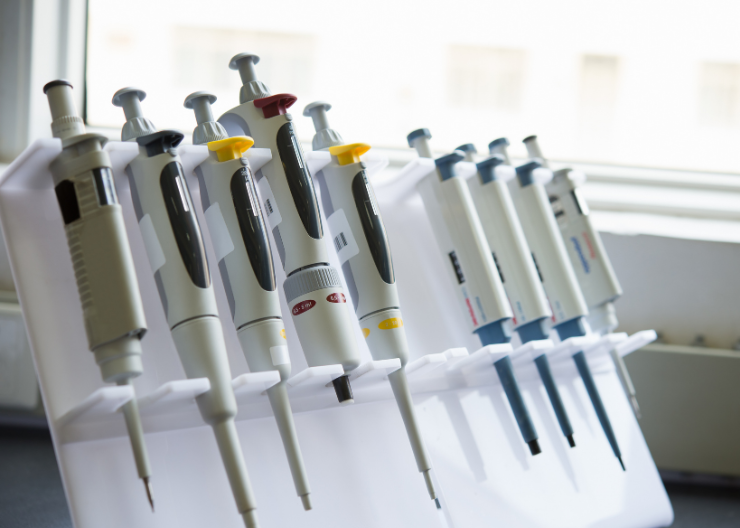The internet is always right
This blog post was inspired by a late-night lab discussion around the Bunsen burner that turned into a heated debate on when something is a pipette and when it is a pipet. Being in the business of accuracy (not to mention precision and trueness), we decided that the team behind the Artel Digest had to get to the bottom of this controversy. Just to be perfectly clear, here are the different scenarios we are considering:
- Pipette and pipet are different yet equally acceptable terms for the exact same thing
- Pipette and pipet describe completely different liquid handling devices—for example, pipette is used for the device that you use pipette tips with, whereas a pipet describes the glass (or plastic) tubes used for serology (serological pipet) and chemistry (volumetric pipet).
- Both A and B—that pipette describes a specific class of liquid handling devices, pipet describes a different class of liquid handling devices, but there are some devices that can belong to both pipette and pipet classifications.
On to our analysis, which starts, like so many things, with some Googling.
Google thinks that pipet and pipette are the same thing
If you try to search for “pipet” in Google, the first thing you see on the search results page is a dictionary definition for “pipette.” We’re calling this a point for Scenario A.
Google also knows that there’s a difference between pipet and pipette
There are ~4M search results for pipet compared to 10M search results for pipette, so clearly the all-knowing search engine recognizes that these words are different. In addition, there is more written about “pipette” on the internet than “pipet”, suggesting that it is the more popular term. Or it could just be that there are more pipette devices than pipet devices. We’re calling this inconclusive.
Google Trends shows definite regional differences in the search patterns for pipette vs. pipet, so maybe it’s a language thing
If you’ve never gone down the rabbit hole of google.com/trends, now is the time to do it—data junkies can spend hours comparing how much search volume exists for Star Wars vs. Star Trek and, ahem, pipette vs. pipet. The map in Figure 1 shows clear regional difference in search traffic, and if you look at the search terms it becomes obvious that this is due to language (Figures 2 and 3). Total search volume over time is shown in Figure 4. Again, this is inconclusive but kind of points to the words being synonyms with regional usage patterns. Maybe another half-point for Scenario A and a clue to take a linguistic approach.
Figure 1. Search volume for pipette (red) vs. pipet (blue) by region.

Figure 2. Queries related to pipet.
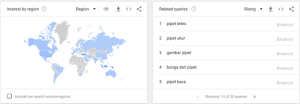
Figure 3. Queries related to pipette.
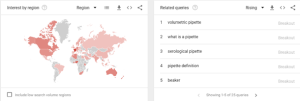
Figure 4. Pipette (red) vs. pipet (blue) search volume over time.

Despite regional search volume differences, both terms are used in books written in English and appear at equal frequency as you approach the present day, so maybe it is not just a language thing.
For our linguistical analysis we first turn again to Google, which has been digitizing books for years. As a result, they’ve amassed a huge database of the printed word, which you can assess for word frequency at Google’s ngram viewer. Even better, you can restrict your search by language, so we can do our search only on books written in English. The results are shown in Figure 5 (goo.gl/i4bKWk accessed on May 9, 2018) and resolve into something interesting as you approach the present day—while pipette occurs with a much, much greater frequency than pipet historically, both terms appear to be converging into equal usage by the year 2000. Of course, questions about sampling bias and the amount of science that is printed vs. only digital in the present day remain uninvestigated by us, however this again seems to point to Scenario A.
Figure 5. Results of pipette (red) vs. pipet (blue) at Google’s Ngram viewer.
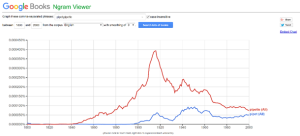
The online Oxford English Dictionary (OED) doesn’t know what a pipet is
If you turn to one of the most venerable dictionaries of the English language, the OED (conveniently at OED.com) has no separate entry for pipet! Although if you look at the “forms” section, you’ll see that the variant “pipet” is listed as existing for the U.S. (Figure 6, http://www.oed.com/view/Entry/144426?rskey=j15CQQ&result=1#eid, accessed on May 9, 2018).
I’m calling this a serious blow to scenarios B and C.
Figure 6. Screenshot of the search results for “pipet” at the online Oxford English Dictionary.
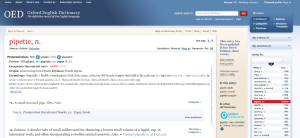
Companies that sell these devices cover their bases by using both terms
If you go to the websites of companies that sell these devices, you’ll see that they use both pipette and pipet, likely to get traffic from people using both terms. Some companies, like Thermo-Fisher, use “Pipettes, Pipettors, and Accessories” as their navigation menu title, and seem to use “pipet” when it’s a brand name. Ditto for Rainin and Eppendorf. VWR takes the opposite approach and uses “Pipet” in their navigation menu and “pipette” when it seems to be part of the product name. However, if you dig deeper into the text on individual product pages, you’ll find the terms used interchangeably: fishersci.com has a page for a “Pipet Helper” (clear use of pipet) which helps “pipette” (we didn’t even get into using pipette as a verb!) both pipets and pipettes. So in sometimes they are synonyms, and sometimes usage depends on who is selling them. (By-the-way, if we’ve missed your pipet/pipette or scientific supply company – our apologies! Time = money = there’s not enough).
Where does this leave us?
A conclusion based on data that is likely accurate, for what it is, but is it true?
Based on this analysis, the Artel Digest team has come to the conclusion that Scenario A is the most likely winner, with the terms being used fairly interchangeably, although we can’t completely rule out a modified Scenario C, where some devices are most likely to be referred to as “pipette” whereas others are more frequently a “pipet”. If you feel strongly about this issue and/or work for a company that sells and/or makes these devices and want to share your point of view, please let us know! We’d like to settle this ongoing controversy!


